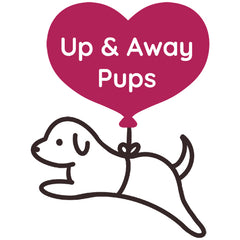HYPOGLYCEMIA: THE DANGER OF LOW BLOOD SUGAR
Getting a new puppy at home is very interesting, but before you engage in this process, you ought to be prepared and know Hypoglycemia. Hypoglycemia or low blood sugar is the most prevalent emergency that one is likely to come across in very young puppies. In this stage, the growing puppies have a greater demand for glucose than what may be normally needed by an adult dog. This condition becomes fatal fairly soon, and if the hypoglycemic state is allowed to persist, it leads to brain damage. As a result, pet owners should recognize those signs in advance and should take the necessary measures to protect their puppy.
What is Toy Breed Hypoglycemia?
Glucose is the major and sole source of energy in the brain, which controls the body's activities. When most of the glucose in the blood is used, it triggers an action of releasing the glucose stored in the liver. The brain is the first organ to be affected when the blood glucose level drops to significantly low levels. When all the stored glucose is exhausted, the brain is prone to severe damage.
Toy-breed dogs often suffer from hypoglycemia, especially when they are 5 months old. These small guys are specifically at risk because they have higher brain mass per body weight than the other breeds. Given their size, they require more glucose to maintain the optimal functioning of their brains.
What Causes Hypoglycemia in Puppies and Small Dogs?
Pups often develop this blood sugar crisis for a couple of reasons; however, the exact cause would involve a vet's help in order to get it addressed. The following are the conditions that develop into low blood sugar:
- The presence of intestinal parasites that affect digestion
- Irregular feeding schedules or the lack of food
- Low sugar content stored in the liver
- Higher metabolic rate
- Lowered body mass
- Portosystemic shunt or abnormal presence of blood vessels around the liver
Hypoglycemia in puppies generally occurs since these juveniles lack proper glucose that gets stored within their bodies to sustain them through overwhelming times or fasting periods. The toy or small dog breeds are prone to hypoglycemia due to the lack of body mass compared to their energy requirements.
Hypoglycemia can also occur in diabetic dogs, especially if they get more insulin than needed.
Clinical Signs of Hypoglycemia in Puppies
The signs of hypoglycemia in puppies vary. It is essential to watch out for these conditions, mainly when your puppy is a small breed and is at greater risk.
Always be on the lookout for any one or a combination of the following behaviors and symptoms:
- Weakness
- Becoming very sleepy
- Disorientation
- A wobbly “drunk” gait
- "Glassy" and unfocused eyes
- Twitching, shaking, trembling, or shivering
- Head tilted to one side
- Seizures
- Unconsciousness
Treatment for Hypoglycemia in Puppies
If your puppy is awake but exhibiting signs of hypoglycemia, see the list above, then first encourage your puppy to eat some strong-smelling food, such as canned food. Those of you who have a puppy that refuses to eat may find that a fingertip of Nutrical will solve the problem. This product is regularly recommended by vets as well as procurers for toy breed puppies. Basic constituents include a malt-flavored paste with added sugar and vitamins. While eating, some puppies will happily suck it from their fingers; others will only take it if it is spread on the roof of the mouth. As a rule, the puppy responds quickly to treatment, 5-10 minutes are enough for this.
For immediate use, you can use a small amount of Karo syrup on the puppy’s gums if they are listless, unconscious, or seizing. It will dissolve under the gum; you don’t necessarily have to swallow it. Besides this, the puppy should be taken to an animal hospital for treatment.
If your puppy shows any signs of hypoglycemia, wrap it in a blanket to keep it warm. This is particularly important when the blood sugar is low, and the puppies are unable to control their body temperatures. Wrapping the dog in a blanket will raise the glucose level as the dog is kept warm.
Note: We always keep a product known as Pet Nutri-Drops at hand. It enables the nutrition to bypass digestion and get absorbed right into the blood, which is effective when the puppy is not responsive to swallowing on its own.
When a puppy is given anything sweet, it should show some signs of improvement and become more alert and responsive in just ten to fifteen minutes. Once your pup starts feeling better, give it a protein-rich meal. Any good high-protein dog food or meat baby food will work to bring blood sugar under control.
Signs of Emergency: If your puppy fails to show signs of improvement after a couple of minutes or appears comatose or unresponsive, immediately head out to your vet. In serious cases, when the blood sugar levels considerably drop, the puppy often needs a dextrose or a glucose injection either through an IV or a shot. Ensure to inform your vet that you are finding your pup in hypoglycemic shock or request a Dextrose injection prior to performing any treatments or tests. Several vets may fail at treating small puppies or hypoglycemia, and this way, you will lose time in search of other causes that prove life-threatening for your pup.
THIS IS A LIFE-OR-DEATH SITUATION — PROMPT ACTION IS CRITICAL.
CAUTION: Every moment counts! Initiate with any sugar product right on! If your pup is unresponsive or comatose, avoid giving liquid that makes it hard to swallow or choke. You can also gently rub honey or Nutri-Cal around their tongue and mouth. Wait for ten to fifteen minutes. Even still your pup is unresponsive, take them to the vet immediately. Ensure to inform your vet about hypoglycemic shock to avoid delays.
Be Prepared!!!
It is relevant to know how to care for your puppy after a hypoglycemic incident. The best thing about it is that the quicker they are treated once these signs surface, the faster they are likely to recover. Most of the pups start moving and playing right up after being attacked or in a few minutes or hours at most. If your puppy has had a very severe attack or was comatose prior to treatment, then it may take several hours and possibly as long as several days to recover fully. For the record, low blood sugar puts their small bodies to sleep so that many dogs may appear ‘depressed’ or ‘drugged,’ and they will not eat on their own if they have been through a very severe attack. To help your puppy recuperate:
Here are a couple of steps that you can undertake to help reduce the risk of hypoglycemia:
- Choose a Puppy Breed That You Know You Can Manage: Before you decide on any tiny dog breed, ensure that you are prepared for high-intensity nursing care for the initial couple of weeks.
- Monitoring Body Temperature: They require additional warmth. Ensure that they do not get exposed to cold temperatures and are kept in warm areas of your home. The small pups will need access to the heating pad. A well-circulating water heating pad is the safest route. Ensure that your puppy crawls away from the heat when it gets too warm.
- Frequent Vet Checks: As soon as you bring home a new pup, you must book an appointment with a vet for wellness checks. Record your pup's weight to ensure what it is gaining and reevaluate its progress.
- Feeding: You have to feed your puppies about 4 to 6 times daily. Soft, high-caloric puppy foods are required, while they hardly eat hard food. A few foods that you can include the gently cooked balanced home-cooked or commercial diets, human-grade dehydrated or freeze-dried diets, and commercial raw diets.
- Supplement with Sugar but ONLY WHEN NECESSARY: Nutrical is a product that both the vets and the breeders for use across the toy breeds often offer. It comprises a malt-flavored paste rich in vitamins and sugar. A few puppies would lap it off their fingers, while others would take it when it gets smeared on the roof of the mouth. If you find your pup listless the initial thing is to try feeding. If your pup refuses to eat, a fingertip of Nutrical can help. However, avoid giving Nutrical or any other sugar as a daily dietary supplement.
Don’t be alarmed by this—BE EDUCATED!! It's all part of having a small puppy, just like a baby.

